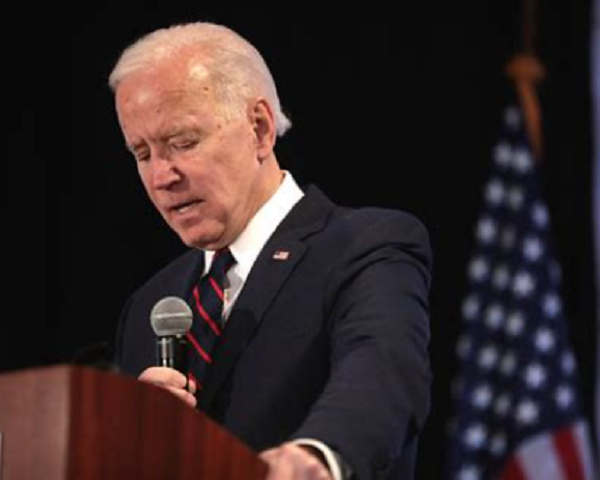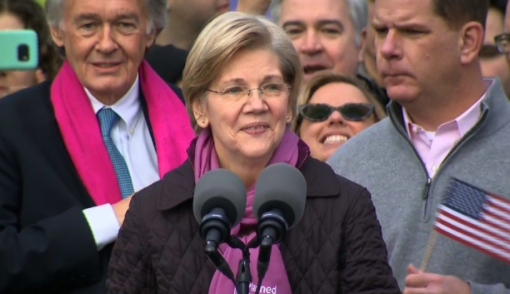The Biden administration continues to face challenges with the Supreme Court. Recent rulings by the court, such as the one declaring President Joe Biden’s $430 billion transfer of student debt as unlawful, have raised concerns about the government’s ability to implement its plans to tax the wealthy.
One particularly influential case, Moore v. United States, may have significant implications for Biden. This is despite the fact that the court will be hearing cases this fall on topics like the right to bear arms, the authority of federal agencies, and the trademarking of the phrase “Trump too small.” The focus of the debate revolves around Biden’s repeated calls for a wealth tax and whether it can be effectively put into practice.
“Reward work, not just wealth. Pass my proposal for a billionaire minimum tax,” Biden said during the State of the Union address earlier this year. “Because no billionaire should pay a lower tax rate than a school teacher or a firefighter.”
“Biden later proposed a 25% annual tax on all gains to wealth over $100 million in a given year, including unrealized capital gains which aren’t currently taxable. The White House says that the tax would only apply to the top 0.01% of the highest earners. While the proposal faces long odds with a Republican-controlled House of Representatives, it could be nixed permanently if the high court rules such a tax is unconstitutional,” The Washington Examiner reported.
“The specifics of the Moore case don’t involve huge amounts of money, but center around the same issues of taxation and the definition of the word ‘income,’” the outlet added. “Charles and Kathleen Moore, a Washington state-based couple, made a nearly $40,000 investment into an Indian company in 2005 and never received any money or other payments from the company even though it made a profit every year.”
The outlet added:
Under the 2017 tax reform law, they learned they were subjected to a mandatory repatriation tax of $14,729. They paid that amount and then filed suit seeing a refund and claiming that the tax violates the constitution’s apportionment clause. The Sixteenth Amendment authorizes Congress to “lay and collect taxes on incomes, from whatever source derived, without apportionment among the several states.” That means that the federal government cannot tax stock gains, which are the source of wealth for many billionaires unless those stocks are sold.
Progressive leaders have for years railed against this state of affairs, with Sens. Bernie Sanders (I-VT), Elizabeth Warren (D-MA), and Finance Committee Chairman Ron Wyden (D-OR) supporting a tax on wealth itself rather than direct income. An appeals court ruled that the Moores could be taxed this way, saying “there is no constitutional prohibition against Congress attributing a corporation’s income pro-rata to its shareholder.” But the Supreme Court could reverse that ruling, rendering the repatriation tax and future wealth-based taxes off-limits at the federal level.
“The Sixteenth Amendment allows the federal government to impose income taxes without apportioning them among the states,” said Cato Institute research fellow Thomas Berry. “But courts have always limited those taxes to that word, ‘income,’ and said that word is meaningful. It doesn’t just mean whatever the government wants it to mean.”
The Cato Institute, along with organizations like the Chamber of Commerce and Americans for Tax Reform, has submitted amicus briefs in support of the Moores. Hearings for this case are expected to commence in October.
The question of whether unrealized capital gains should be classified as income has been a topic of ongoing debate among scholars.
Berry suggests that instead of pursuing this approach, Biden and other Democrats should consider raising conventional income taxes, which aligns with Biden’s existing intentions. Additionally, they could explore measures such as tariffs on imported goods.
Biden frequently emphasizes the idea of imposing taxes on the wealthiest individuals in his speeches. He contends that, on average, they pay as little as 3% of their income in taxes, which is lower than the tax burden borne by middle-class workers.
“You can never predict for certain,” Berry said, ” but I think the justices will be concerned about setting a new precedent here and opening the door to a lot of taxes that we’ve never seen before at the federal level.”
In the upcoming fall session, the Supreme Court is set to consider several cases that hold potential for curbing the powers of the federal administrative state.
The court has decided to review cases challenging the constitutionality of an agency funding mechanism that operates outside of the traditional congressional appropriations process and oversight, as well as the practice of federal courts granting deference to agency interpretations of the laws they are responsible for enforcing.
Additionally, the court has agreed to examine a case that could reintroduce jury trials for a specific category of civil cases currently overseen exclusively by administrative agency judges. SEC v. Jarkesy is considered one of the most significant cases of the upcoming term as it may reinstate the right to a jury trial in administrative civil cases, as reported by the Daily Signal.







